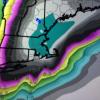-
Posts
77,647 -
Joined
-
Last visited
Content Type
Profiles
Blogs
Forums
American Weather
Media Demo
Store
Gallery
Everything posted by 40/70 Benchmark
-
It doesn't take a rocket scientist....this is why I placed the band over ORH yesterday, when everything was out to sea....now its looking to go even further, which is going full frontal me with the slot. Absolutely brutal trend...and my favorite part is when people start lecturing you over being upset over 15".
-
Winner eats and drinks for free at next GTG on me....you need the correct municipality and snowfall total within 3" in order to win...if no one meets said criteria, then tough shit....buy your own booze and grub. Contest closes after 18z EURO tomorrow night...no entries accepted a from 7:30pm onward....if you make a call, the board time needs to reflect the post time of 7:29pm or earlier. I will make my pick after my forecast tomorrow. GO.....
-
I was about to make an obscene map yesterday...I was resisting all of the garbage models, then the 18z NAM disaster bomb dropped, and I tempered a bit...it was just too much to TOTALLY ignore. Thanks for the kudos, but long way to go this season....I have said some wins and losses on a seasonal level. Seems like my general idea has been delayed about 2 weeks. I had the KU shot in ealy Jan.







